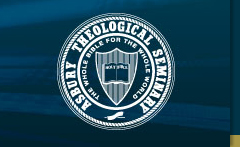Files
Download Full Text (118 KB)
Summary
Texts and Reading Assignments L. Wood, God and History, The Dialectical Tension of Faith and History in Modern Thought (2005). Learning to think theologically assumes that one has a basic grasp of the substantive issues in theology. This means one must be acquainted with the way that theology has been done since the earliest days of Church history. Because the key methodological issue of Christian theology is related to its historical claims, the focus of this work is on the relationship of faith and history. L. Wood, Theology as History and Hermeneutics, A Post-Critical Conversation with Contemporary Theology (2005). There are many competing theological alternatives in the contemporary world, presenting evangelical thought with a challenge on how to learn from them while remaining true to the Scriptures. This work will introduce students to the representative theologians and movements of the 21st century. The uniqueness of evangelicalism is its commitment to the authority of Scripture, while at the same time being willing to dialog with opposing points of view in order to learn how to relate the enduring message of the Bible in today’s world. Donald Thorsen, The Wesleyan Quadrilateral (2005). This is the classical work on Wesley’s methodological assumptions. Asbury Theological Seminary is a confes- sional school of theology. Although we do not think that all schools ought to be con- fessional, the founding fathers decided Asbury would be established primarily to train students in the Wesleyan tradition and hence we have chosen to be confes- sional. Thorsen is a distinguished alumnus of Asbury, and his work on Wesley’s methodology will introduce the student to the distinctive features of the Wesleyan way of doing theology.
Publication Date
January 2006
Publisher
Asbury Theological Seminary
Keywords
Theology, Spring, Wilmore, ST501, SP06, Kentucky, Fall, Sytematic, KY, FA06
Language
English

